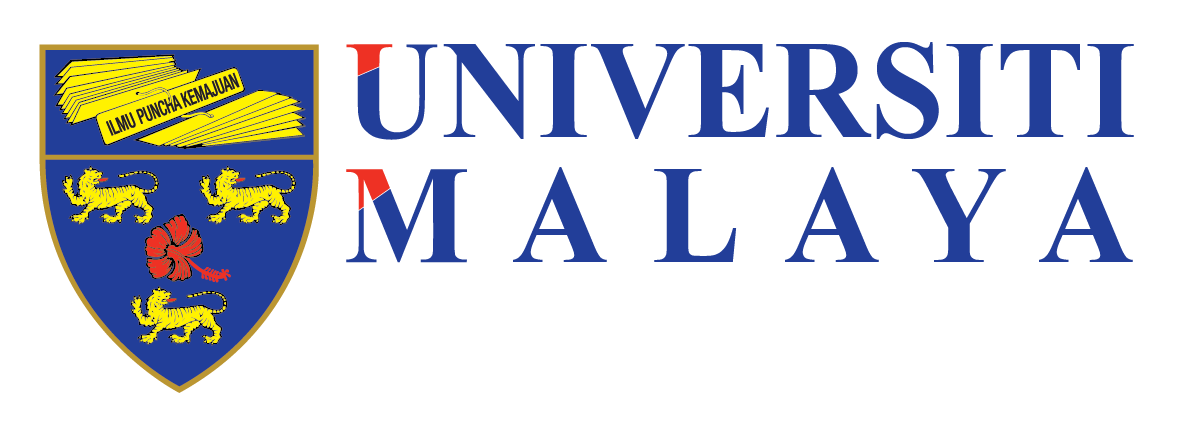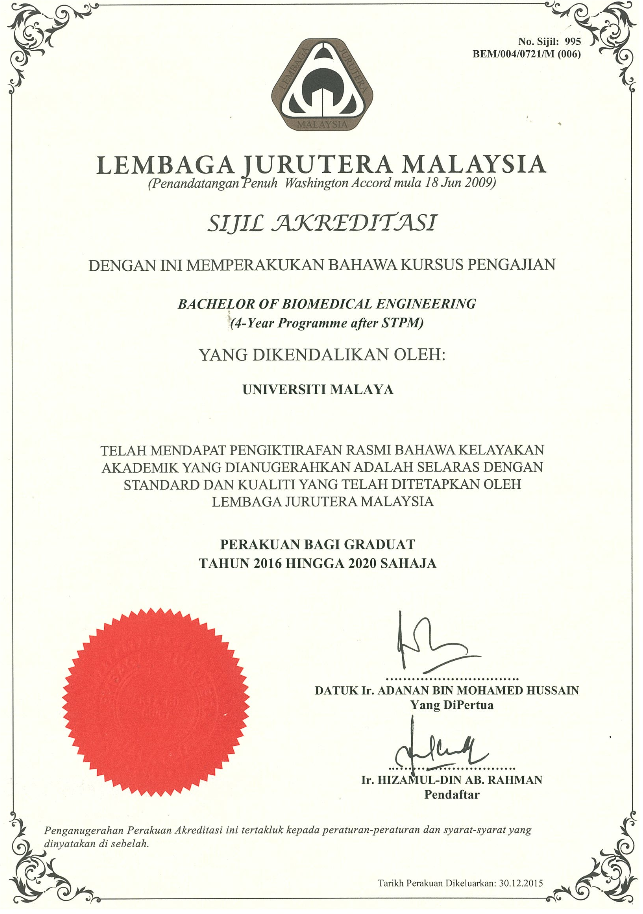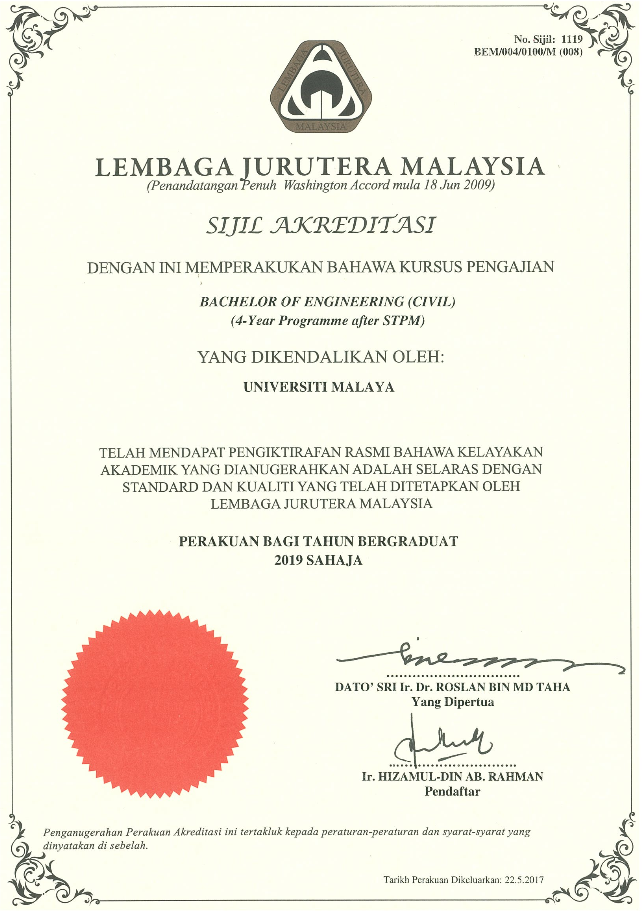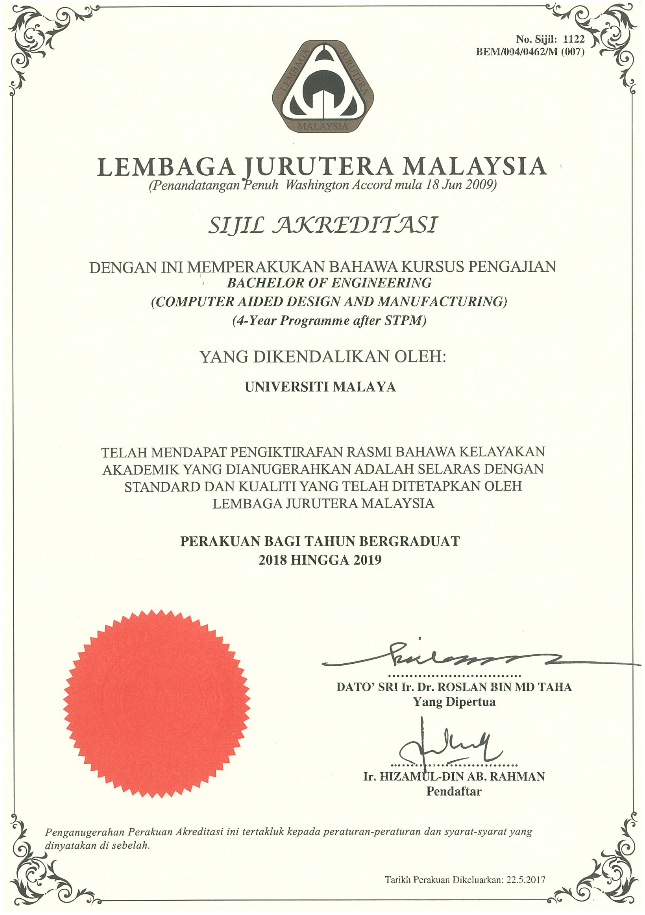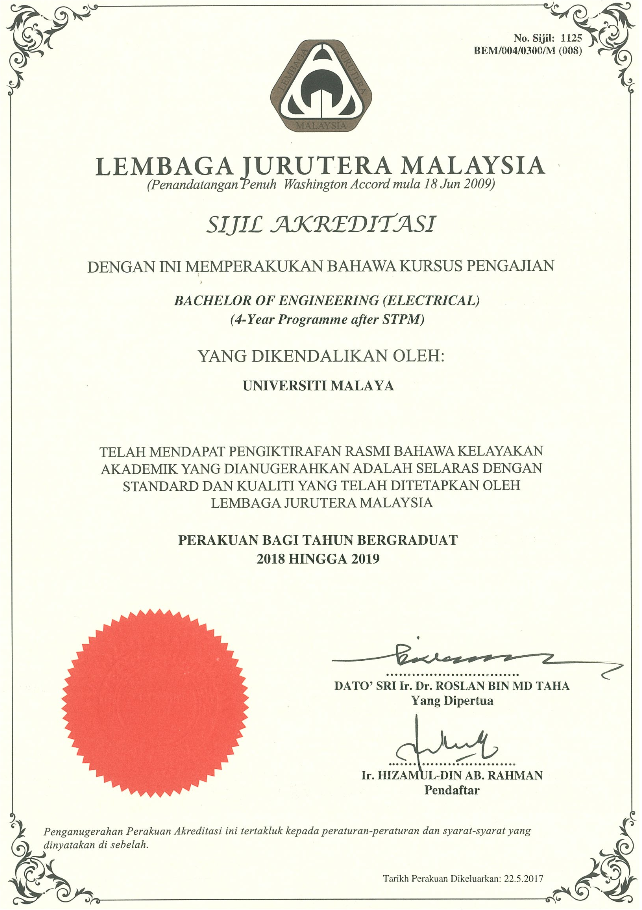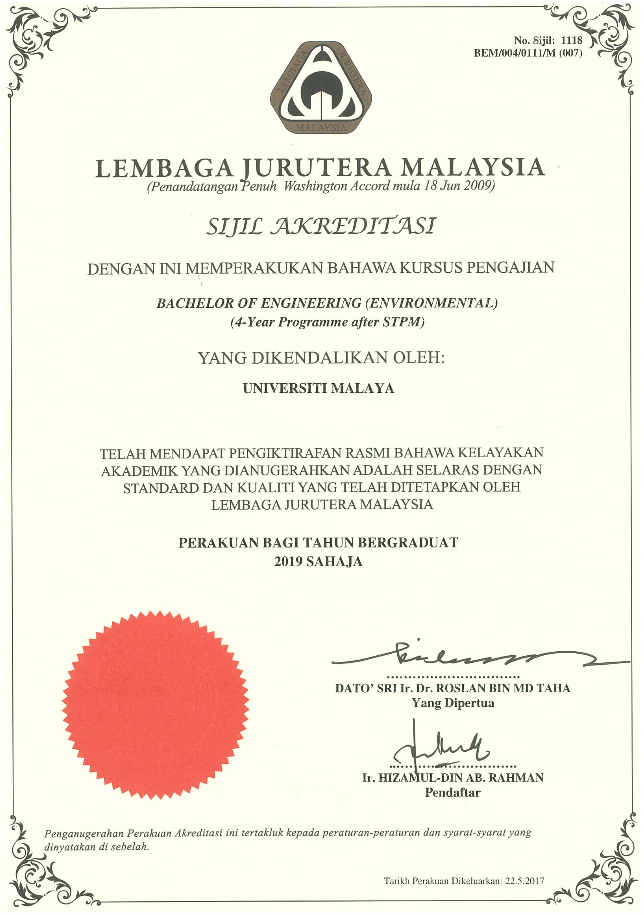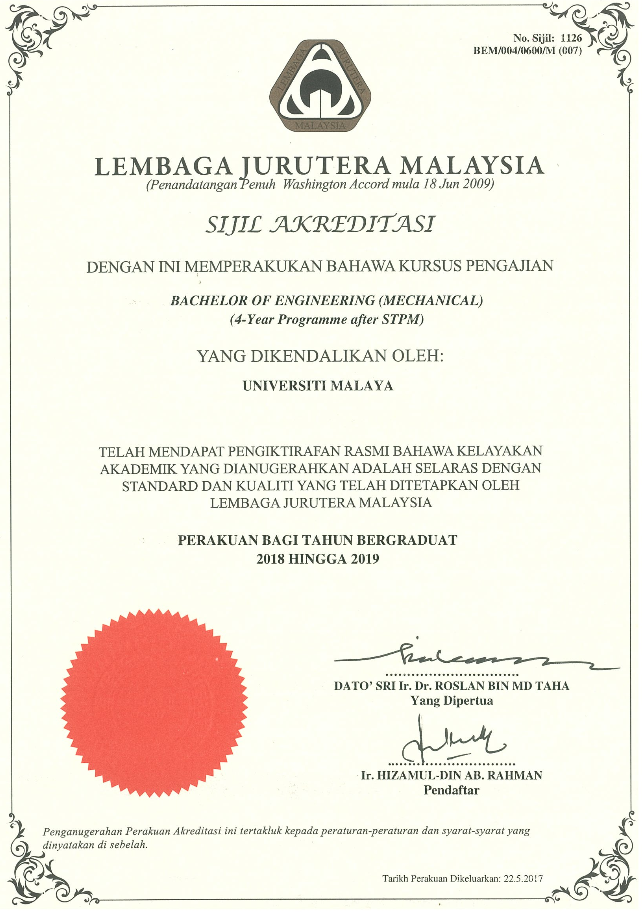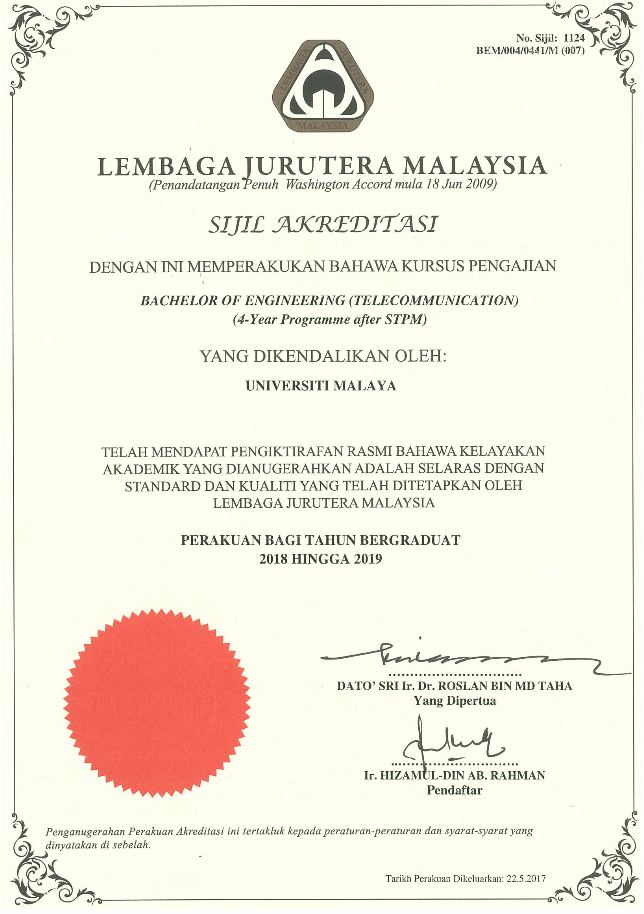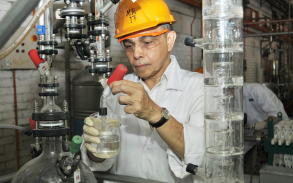Undergraduate Programme Accreditation
What is Engineering Accreditation Council (EAC)
EAC comprises five stakeholders namely Board of Engineers (BEM), the Institution of Engineers Malaysia (IEM), Industry Employers, Malaysian Qualification Agency (MQA) dan the Public Service Department (JPA).
On 18th June 2009 the Board of Engineers Malaysia (BEM) was accepted as the 13th signatory of the Washington Accord (WA). This means that all engineering programs accredited by EAC will be recognised as an equivalent entry qualification to practise engineering in all signatory countries under the WA including the US, Australia, Canada and Japan.
During the EAC visit, the engineering programme will be accreditated based on:
- The implementation of Outcome Based Education (OBE)
- Curriculum Staffs, students and facilities
- Quality Management System (QMS)
What is Outcome Based Education (OBE)
- A systematic approach in curriculum delivery that focuses on a set of intended goals.
- Based on student-centered learning philosophy that focuses on empirically measuring student performance, which are called outcomes.
- An approach that fosters the spirit of Continuous Quality Improvement (CQI)
OBE focuses on student learning by:
- Using learning outcome statements to make explicit what the student is expected to be able to know, understand or do
- Providing learning activities which will help the student to reach these outcomes
- Assessing the extent to which the student meets these outcomes through the use of explicit assessment criteria
Characteristics of OBE Curricular
- Guided by EAC Accreditation Manual (recent EAC Manual 2007 can be downloaded from the EAC website)
- It has program educational objectives (PEO), program outcomes (PO), course outcomes (CO) and performance indicators
- It is 'objective and outcome driven' where every stated objective and outcomes are intentional & must be measureable i.e. can be assessed and evaluated using suitable performance indicators
- It is centered around the needs of the students and the stakeholders
- CQI processes are put in place at the course level and program level
What is PEO, PO, CO, and CQI
- Programme Educational Objectives (PEO) describe the career and professional accomplishments that the programme would prepares the graduates to achieve in a few years (3-5 yrs) after their graduation
- Programme Outcomes (PO) are developed to support the PEOs, they describe attributes that the students are expected to attain at the point of graduation
- Course Outcomes (CO):
- Outcomes that are expected of the course and what student should be able to do as the course progress
- These statements are course specific and relate to the course content
- COs are linked to specific POs and thus serve as evidence of the achievement of PO
- COs are assessed and evaluated through various measurement tools
- Continuous Quality Improvement (CQI):
- CQI is the core of OBE
- Assessment and evaluation processes provide critical information to faculty (lecturers) and administrators on the effectiveness of the design, delivery, and direction of an educational program …. the CQI process
- Improvements based on feedback from evaluations will close the system loop and the process will continue year after year
OBE Advantages
- Discourages traditional education approaches based on direct instruction of facts and standard methods of assessment such as test and final exam.
- Incorporate innovative teaching methods and assessment, such as:
- Problem-based Learning (PBL)
- Case studies involving literature search
- Group projects
- Oral presentation
- Invited talks and industry visits
- It requires that the students demonstrate that they have learnt the required skills and content.
- Measurement of student outcome and take corrective measures to overcome deficiencies in course delivery methods / assessment / student attitude, etc.
Why OBE
- Advocated by Washington Accord (WA)
- Accredited Engineering Graduates by BEM are recognized by other signatory countries in WA
- As of July 2009, OBE implementation is a mandatory requirement for engineering programs seeking accreditation from EAC / BEM
- Curriculum must be designed with specific outcomes to prepare graduates to meet the industry needs at entry level
- Need to take inputs from stakeholders
For more information about EAC, please visit:
-
Accreditation Certificate
| Programme | 2013 | 2014 | 2015 | 2016 | 2017 | 2018 | 2019 |
| Bachelor of Engineering (Civil) | --- | Accreditated | Accreditated | Accreditated | |||
| Bachelor of Engineering (Environmental) | --- | Accreditated | Accreditated | Accreditated | |||
| Bachelor of Biomedical Engineering | Accreditated | Accreditated | |||||
| Bachelor of Biomedical Engineering (Prosthetics & Orthotics) | Accreditated | --- | --- | ||||
| Bachelor of Engineering (Chemical) | --- | Accreditated | Accreditated | Accreditated | |||
| Bachelor of Engineering (Electrical) | Accreditated | Accreditated | Accreditated | ||||
| Bachelor of Engineering (Telecommunication) | Accreditated | Accreditated | Accreditated | ||||
| Bachelor of Engineering (Computer Aided Design & Manufacturing) | Accreditated | Accreditated | Accreditated | ||||
| Bachelor of Engineering (Manufacturing) | Accreditated | Accreditated | Accreditated | ||||
| Bachelor of Engineering (Materials) | Accreditated | Accreditated | Accreditated | ||||
| Bachelor of Engineering (Mechanical) | Accreditated | Accreditated | Accreditated | ||||
| Bachelor of Engineering (Computer) | Accreditated | Extended 2016 | --- | --- | --- | ||
-
